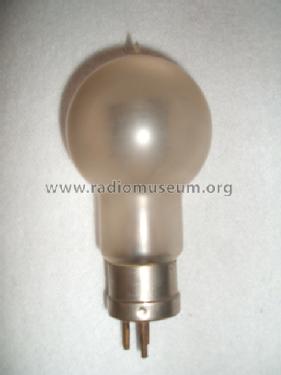Tube filament tester 453
Philips; Eindhoven (tubes international!); Miniwatt
- País
- Holanda
- Fabricante / Marca
- Philips; Eindhoven (tubes international!); Miniwatt
- Año
- 1923–1925
- Categoría
- Aparato de medida y servicio (Equipo de laboratorio).
- Radiomuseum.org ID
- 214003
- Numero de valvulas
- 1
- Válvulas
- 454_Philips
- Gama de ondas
- - no hay
- Tensión de funcionamiento
- Red: Aparato AC/DC. / 110/220 Volt
- Altavoz
- - - No hay salida de sonido.
- Material
- Bakelita con lámparas a la vista.
- de Radiomuseum.org
- Modelo: Tube filament tester 453 - Philips; Eindhoven tubes
- Ancho, altura, profundidad
- 150 x 150 x 0 mm / 5.9 x 5.9 x 0 inch
- Anotaciones
- To check filament continuity of early E3 and E4 base tubes. The 453 is a Miniwatt tester and the first Philips Miniwatt’s were the B2 and D6 tubes in 1923. There are tipped ones and tipless ones. They were also the first tubes with getter and you can not see the filament. That will be the reason for making the 453. In 1925, the tube filament tester 453 was already obsolete because it can not test the emission of a tube and the anode current became much bigger. The neon indicator bulb with spiral anode was made first with a metal base and tip and later with a moulded base, clear and tipless.
Heizfaden-Durchgangsprüfer für Röhren mit E3 und E4 Sockel.
- Peso neto
- 0.340 kg / 0 lb 12 oz (0.749 lb)
- Autor
- Modelo creado por Fin Stewart. Ver en "Modificar Ficha" los participantes posteriores.
- Otros modelos
-
Donde encontrará 5273 modelos, 4419 con imágenes y 3458 con esquemas.
Ir al listado general de Philips; Eindhoven (tubes international!); Miniwatt
Colecciones
El modelo Tube filament tester es parte de las colecciones de los siguientes miembros.
Museos
El modelo Tube filament tester se puede ver en los siguientes museos.










